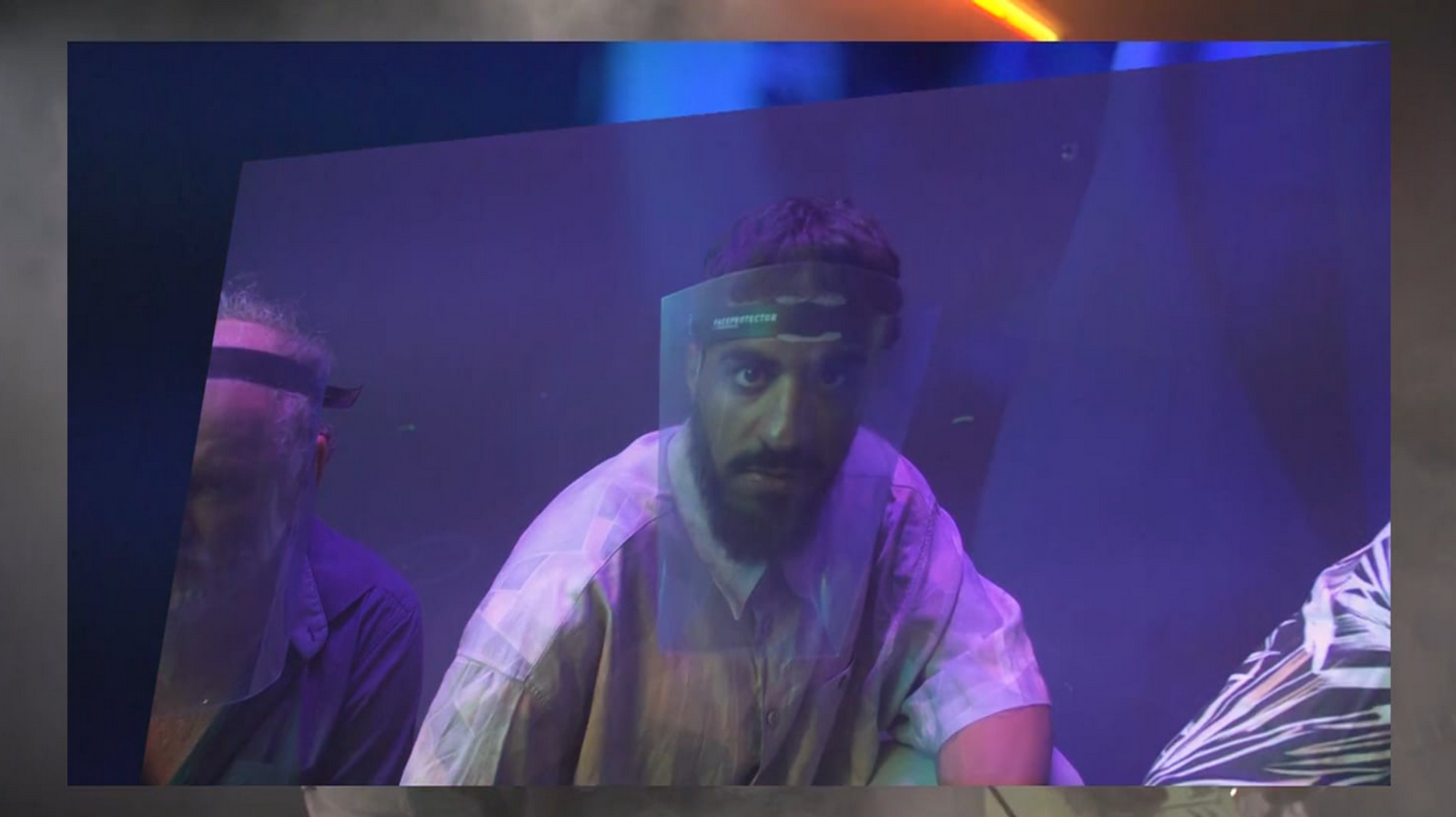Corona Passion Play
– what is that?
published on 30. March 2020
How did you come up with the idea of the Corona Passion Play?
Nicolas Stemann: In the past, epidemics were explicitly fought with theatre – and apparently rather effectively, when considering the founding myth of the Oberammergau Passion Plays: in response to the plague, the citizens of Oberammergau took an oath in 1633 to start a theatre and to perform a Passion Play every ten years until the end of time.
The plague ended immediately and from then on there was no more death to mourn. The promise has been kept - until this year, when for the first time since its beginning, the Passion Plays could not take place - ironically due to a pandemic. Maybe theatre can contribute more than one thinks.
How advanced is the development process?
Nicolas Stemann: Right at the beginning: the idea only goes a few days back. The plan is that the participants are directly involved during this creative process. Every couple of days something new is released: a song, a text, an idea, a picture. All of this is still unorganised and completely open within the process.
Who will be a part of the Passion Play?
Nicolas Stemann: This will develop gradually. At the moment, there is only me, who has some ideas for songs and lyrics, and Emma-Lou Herrmann, who produces the videos. But this circle will expand more and more. Although the Schauspielhaus Zürich is closed at the moment, its employees are all available: a large ensemble of stage artists, dramaturges, technicians, assistants; who are not allowed to go to work at the moment, but who can still work from home. We will see who can be involved in what way. First, we all have to gain experience of working in this way. Nobody really knows how to do it - and what forms it can take.
Why does it sound like a musical when it should be a passion?
Nicolas Stemann: The musical genre only occurs at the beginning, soon you will see how the project develops. It is about a mix of styles and genres.
Since the piece is written based on the current circumstances and is practically a response to them in real-time, the satirical lightness may well turn into something very dark. It starts in the language which is typical for musicals: English - but maybe it continues in Latin at some point; and ends in the language of viruses, we'll see.
Given the severity of the situation, isn't it a bit bold that the project has such a playful approach?
Nicolas Stemann: What I like about the term "Passion Play" is the tension between passion, i.e. the suffering, and play. The word (even if it was originally intended differently) resonates with tragicomedy. As for the play: I have realised only recently that vaccines, similar to theatre, also work with mimesis and disguise. Harmless types of viruses "act" as dangerous pathogens to a certain extent and, thus, in a playful way cause the body to develop resistance and to become immune. This is exactly how theatre works! It is only fitting that of all things pests and epidemics have given the theatre in Central Europe an initiation push! The play and the playfulness may sometimes seem like sheer nonsense - but in the end, it's about more than that. Depending on from which perspective you look at it, even classic Passion Plays can appear quite funny and absurd, even if this wasn't intended.
Traditional Passion Plays depict the crucifixion and resurrection of Christ. What will the Corona Passion Play focus on?
Nicolas Stemann: I don't know yet. I'll start by pitching individual ideas. It's still chaotic and incoherent; let's see what it will lead to in the end and whether it has to be absolutely coherent. I can imagine that it begins like a chronicle and then becomes more and more fantastical. Maybe Jesus will make an appearance – in some way, he was also a doctor. The virus will probably appear at some point as well and ask in a chorale who might actually be the worse pathogen: viruses or human beings?
When and in what way will the Corona Passion Play be performed?
Nicolas Stemann: It's about how to deal with a theatre where currently there can be neither rehearsed nor performed - and still find a way to be theatrically creative. If there will ever be a performance in the usual sense (on a stage, in front of an audience, in a theatre hall) is currently of secondary importance. Maybe it will suffice to realise this project only in the audience’s imagination. The individual parts that we publish will work like a star cut (does anyone else remember what this is?), which you can piece together bit by bit. However, should a performance actually be realised one day, then it must be repeated every ten years in the Schauspielhaus Zürich - no matter who will be the artistic director by then. So demands the oath.
